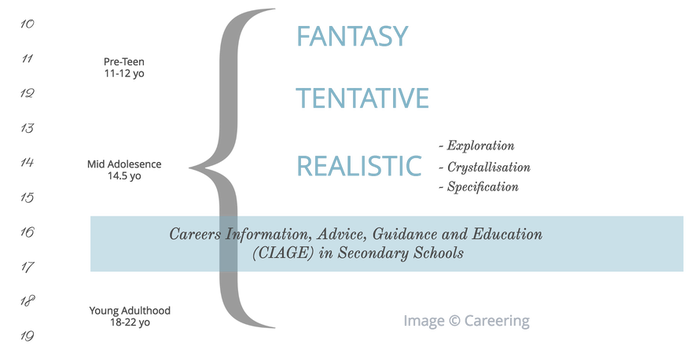Words, Ideas, StuffSome ideas and thoughts, captured with the view to help you.
|
|
We all know we’re in the midst of a rapidly changing global economy, and digital landscape. Increasing digital inclusion in a constantly changing environment is tough! A New Zealand Government report “Digital New Zealanders: The Pulse of Our Nation” shows that while an average of 15% of families across the country are without internet access, most of them are packed into low socioeconomic areas. And by the end of 2022, 87% of Kiwis should have access to ultra-fast broadband (UFB), putting New Zealand among the top five OECD countries for the proportion of the population with access. Worldwide, 71% of 15-24 year olds are online. OECD data shows adults without information and communications technology (ICT) experience, even if employed, are likely to earn less than those with ICT skills. We know that there’s paid growth in new digital jobs and these can be accessed and delivered remotely with access to good internet and the capability to do so. While it seems the overarching infrastructure is well underway, access is only one indicator of digital inclusion, people must also have the motivation, skills, and confidence to go online. Napoleon Hill was said to have come up with the phrase: "Whatever the mind of (wo)man can conceive and believe, it can achieve." A small percentage of any population are the big thinkers, the ones that can conceive of new, bold vocations. It’s the mass middle, the broader base and majority of young people that may have difficulty conceptualizing roles yet to form, or that do exist but not within their reality or perceived reach. This audience will benefit greatly from visibility on roles, pathways, and people ‘like me’ who are in these roles. A one percent lift in income for the mass middle, has a significant impact on the whole economy not just financially, but in terms of engagement, impact and wellbeing.
Career Education and Guidance in New Zealand Schools report states “We know that students become more engaged with learning if they are thinking about and preparing for the next steps in their lives. Young people who have learned to manage their own journeys through life are equipped to seize and create opportunities and participate fully in society and the economy.” Assisting them to broaden their expectations and showcase more diverse possibilities for what those next steps can be, is essential. What exists today, may not exist tomorrow, so the imperative is even greater to help rangitahi see what’s possible. “A Review of Careers Information, Advice, Guidance and Education (CIAGE)” in New Zealand by the PPTA shows the following: “There is no shortage of careers information available, in fact there is probably too much information, but the key question is how well the information is packaged to meet the needs of learners and their families/whanau, especially those who are not already well informed.” “Research shows that young people use their families/whanau as a major source of careers information, and this can be problematic, especially when there is only limited experience and knowledge of career options within the family/whanau.” It is therefore essential that young people and their whanau develop knowledge on the changing workplace and nature of jobs. In summary, young people are seeking career 'possibilities' between the ages of 12-14.5, and from there, narrow their choices down to what is seen as realistic? We need to expose them to newer, innovative, and broader roles, while they’re seeking possibility. The below model combines Ginzberg's career theory, with the New Zealand school career guidance model. Career guidance kicks in around 15.5 ... a year AFTER rangatahi (young people) have already decided what's 'realistic' for them. So make sure you're the one shining the light on big, bold, bad a$$ women and careers from the moment these little humans hatch and every day after, you never know how you're positively shaping them. Image © Careering
0 Comments
Women hate negotiating! This has been proven now in a number of studies. Babcock and Laschever’s research in their book "Women Don't Ask: Negotiation and the Gender Divide" shows that
2.5 times more women than men said they feel "a great deal of apprehension" about negotiating Men initiate negotiations about four times as often as women When asked to pick metaphors for the process of negotiating, men picked "winning a ballgame" (they’re American, it would be the same as winning a soccer or rugby game) and a "wrestling match," (what is the Kiwi or Aussie equivalent of wrestling? Cricket? Surfing? Bowls?) while women picked "going to the dentist." - that's universal, no-one sees that as a good way to spend an hour, ever. Winning a game or an hour or more of pain .. you can see why men and women approach negotiation differently when that's the expectation and usually, the past experience too. Why it matters? Firstly – everyone deserves to get paid a fair wage for a good day’s work. It’s up to you to ensure you receive this. Your value and your contribution is important. You are a contributor to the workplace, your home, the community and the economy and having a salary that reflects your employment output is a key part of enabling you to deliver your best contribution and grow day after day. It’s not just you. We all need to get better at this, teach this skill, pay it forward, coach others, share stories, learn the lessons from when it goes well and when it doesn’t. We should talk about it more and collectively, build capability. Emily Amanatullah, the Assistant Professor of Management at the University of Texas completed a research study too, hers asks men and women to negotiate for themselves, and on behalf of another person. Her findings showed that when the women negotiated for themselves, they asked for an average of $7,000 less than the men, yet when they negotiated on behalf of a friend, they asked for just as much money as the men. Next time you're in there asking for what you are worth, imagine you're bestie's in there with you and you're asking for her. Bank that $7K - you deserve it! Keep an eye out here as next month we will publish a 'how to' guide for negotiating your salary. The gender pay gap is the difference between male and female earnings expressed as a percentage of male earnings, according to the OECD. Fawcett Society has calculated this and sets the date as 9 November ... meaning that after this date, women are effectively working for FREE. There are many factors contributing to this. An area I believe has a huge impact, is that of salary negotiation. "We only get paid what we negotiate - NOT what we are worth" (quote credited to my dear friend Brad Lange, Australia). Research shows that negotation is an area women would benefit from increased capability and confidence with. I'm working on a whole chapter of the book to help break this down, demistify negotiation, and make it really easy to work through. Don't wait for me though - get out there and ask for what you're worth! (or email me if you want a hand to do so). This quote from Lottie O’Conor sums it up well .... Imagine if your boss came over to your desk this afternoon, thanked you for all your hard work so far, but said that the company wouldn’t be paying you for the remainder of the year. You’re still expected to be in the office on time every morning, work late on that big pitch or project and hit those targets. You just don’t get paid for your time. Why? Because you’re a woman. |
Categories
All
AuthorMelissa Davies Archives
January 2024
|



 RSS Feed
RSS Feed